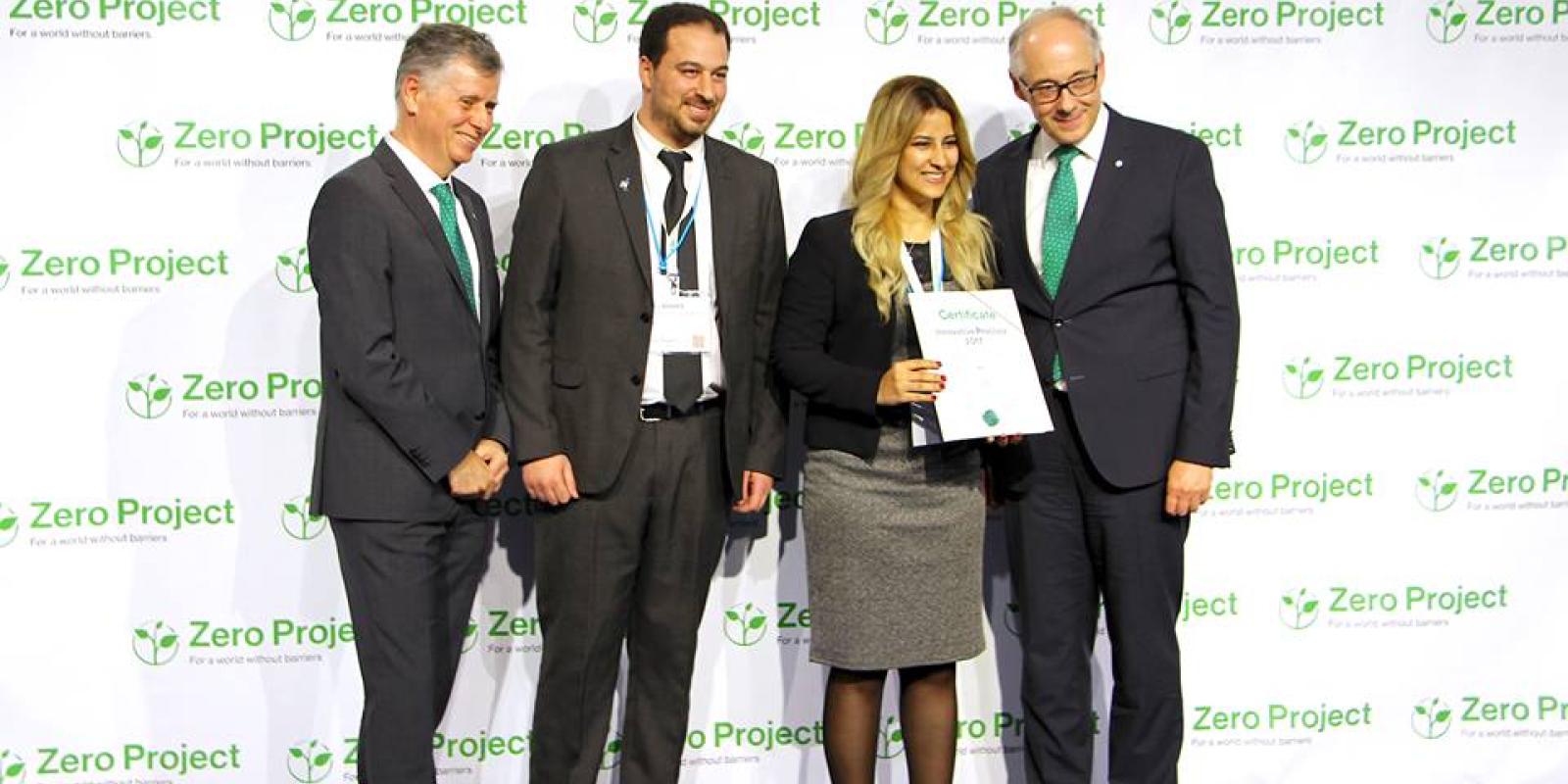
For Helm Foundation 'Every Day is International Day of Persons with Disabilities'
“Every day is an International Day of Persons with Disabilities for us,” said Ramez Maher ’12, alumnus and co-founder of Helm Foundation. “We’re always focusing on this. This is what we do.”
Maher and alumna Amena El-Saie '11 established Helm Foundation in 2014, with the dual goals of empowering people with disabilities and working to educate individuals and organizations on ways to accommodate those with disabilities.
Helm Foundation and its mission have continued to spread throughout Egypt since its founding, and its name has become widely recognized. In its most recent public awareness campaign, a video titled One Click to Move immediately went viral, reaching over 8 million viewers. Each time someone shared, liked or left a comment on the video, Helm received points that translated into funding from various participating sponsors.
“We wanted to reach 2 million people in 20 days, and we reached that goal in just 12 hours,” said Maher. “Awareness campaigns are important. It’s hard to change people’s perceptions and mentalities. We want to make people aware that there are more than 14 million people with disabilities in Egypt.”
Aside from spreading awareness, Helm Foundation gears immense efforts toward realizing change on the ground in Egypt. “One of the main issues we work on is accessibility,” said Maher. “We try to understand problems that hinder those with disabilities and work on the physical barriers that exclude people from the job market and society.”
They’ve most recently signed a protocol with the governor of Giza to make sure the area surrounding Cairo University is physically accessible. “It’s not only about the street outside of the university,” said Maher. “When you have one model that is fully accessible, it can easily be replicated in any street.”
Previously awarded a two-year fellowship that enabled them to travel and meet experts around the world, Helm Foundation was able to learn from the Japanese models to manufacture the first tactile block in Egypt to be implemented in Luxor and Giza. Tactile blocks are segments of textured ground that are used to help people who are visually impaired while walking on sidewalks, waiting on train or metro station platforms or approaching stairs.
Additionally, the foundation is currently working to make the city of Luxor more accessible in collaboration with Vodafone. They’ve recently signed a protocol with the governor of Luxor to begin making modifications, starting with the Ministry of Antiquities in a project to modify the Luxor Museum for better accessibility.
“This will actually be beneficial for the entire country,” said Maher. “A huge portion of the global society is made up of people with disabilities. Focusing on Luxor could actually help the country with economic growth. Many people, even those without disabilities who need spaces to be more accessible – like the elderly, pregnant women, families with strollers – want to come to Luxor. They all need accessibility.”
The foundation is also in the midst of an ongoing, growing project titled Intaliq, or “Go,” which encompasses a mobile app and website that allows people with disabilities to check different locations to see the level of accessibility before actually going. Thus far, it’s compiled information on more than 1,000 locations.
Helm’s increasing success and impact has been recognized by various organizations, such as United Nations Vienna, which awarded Helm for being one of the best practices in the world with regard to disability employment.
